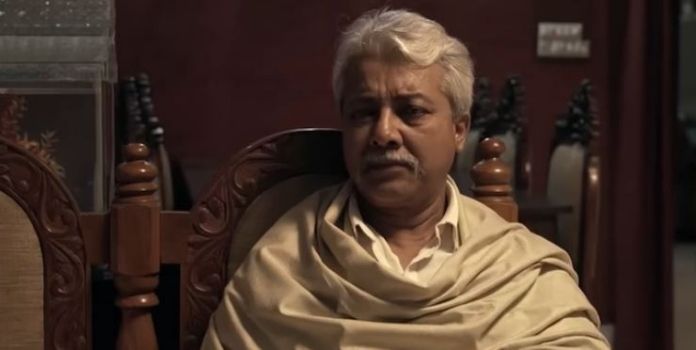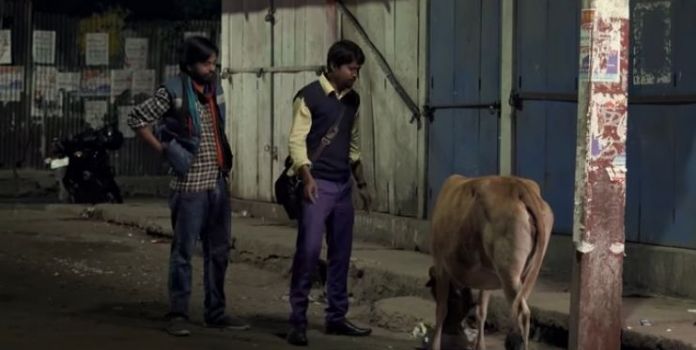As content today tends to be increasingly being manifested by political propaganda, so has strengthened the expression of dissent through popular mediums. Cinema, in particular, plays essentially a significant role when it comes to inspire, influence, and enlighten the masses. Today, cinema as a mass media is more powerful than ever in picturing the present and reflecting the future. With Himanshu Prasad Das’s Goru, it can be thus said that sometimes the right movie arrives just at the right time – the social and political context being the changing nature of politics in Assam, or if categorized broadly, the Northeast post-2014.
Polarization is the problem of our age and the divides between all sides are more apparent than ever before as perceptions are being shaped along partisan lines. Such divides, conflicts and preoccupations find footing in the movie Goru. As a lost cow is being found and brought back home, an issue of ownership arises when a supposedly new owner emerges claiming his right over the cow as his. What starts out as a social drama heightens up as political and administrative institutions get pulled into the scenario. Things get ugly and unruly real fast as the competitors for the legitimate ownership of the cow find themselves at the opposite ends of the spectrum of hate.

Goru is very much a story about ordinary people who arrives at such crossroads or fall prey to contested and manufactured narratives. It is a fairly straightforward story which finds its value in raw and timely observations about the society and the whole political scenario at large as the discourse on nationalism shifts with riots, violence and lynching becoming our highly concentrated realities. But it is robbed off an equally compelling human drama. A human drama is not necessarily sentimentalism or manipulation in its entirety but the reflection of a quiet moment or sometimes a silent voice of protest. In that case, Goru doesn’t have any depths to spare. As a satire, the film’s sole end is not only to make the viewers think in between laughs but also to carve out a reasonable amount of empathy while offering a critique of the living realities of the present.

As a political drama, Goru was never a case since it barely scratches the surface. The caricatures that operates from behind closed doors, fail to take off and materialize beyond the given anti-Muslim rhetoric. They just happen to be a part of the movie that they are a part of. With the conflict and the urgency afar and the first half moving at a slow and sedate pace, Goru has all the time to take an easy bite at romance which is depressingly dated but there is simply not enough build-up for scenes to arrive at their intended level of intensity later.
The quirkiness retains so as Himanshu Prasad Das’s ability to find humor in unusual places. But, a hit or a miss, the main credit of this satire will be always for its portrayal of a nation or a region in crisis, nothing more and nothing less. The understated grace of the resolution is not offered alongside radicalized justifications; rather, it’s edged out by a subtle touch of humanism and tolerance which, contrary to the spelled out tone of the film, is honest and fair. In fact, the conclusion speaks louder than the entire film. Goru is decent and its urgent vocabulary appeals to but ultimately it lacks the power to be truly powerful. With regionalism in crumbles and a strongly felt urgency of unification to overpower religious divides, there is certainly a lot to learn from Goru. It impressive on certain terms and moments but that doesn’t resonate for long. The first Assamese release post the pandemic, Goru has not adopted for a traditional theatrical release but its contribution to set the ball rolling for Assamese cinema post lockdown also won’t be forgotten.

